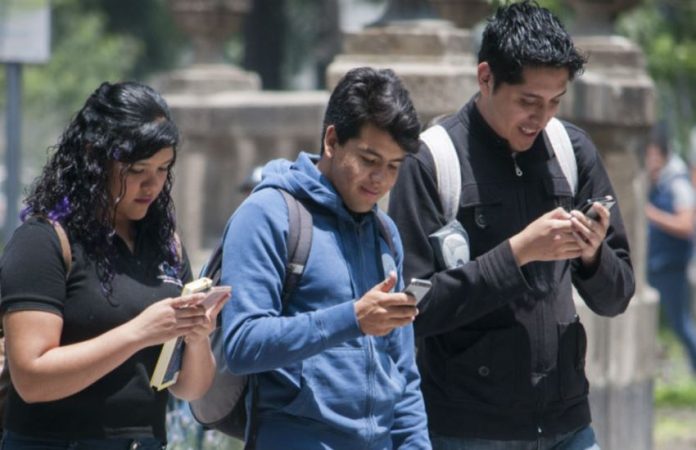With the aim of reducing crimes facilitated by the use of cell phones, the federal Senate has approved the creation of a national registry of mobile phone users that will collect biometric data such as fingerprints and images of people’s irises.
Supported by most ruling party senators, the reform to the Federal Telecommunications and Broadcasting Law passed the upper house of Congress on Tuesday.
The reform, passed by the lower house last December, makes it mandatory for people to join the registry — which is expected to be created within three years — when they purchase a SIM card or acquire a new prepaid mobile telephone line.
The objective of the reform is to reduce the incidence of crimes such as extortion and kidnapping (including asking for ransom), which are often aided by the use of unregistered cell phones. Many crimes facilitated by the use of phones have been traced to Mexican prisons.
According to the reform, people purchasing a new SIM or seeking to activate a prepaid mobile phone will have to present ID, proof of address and one form of biometric identification. That could be their fingerprints, images of their irises or a range of facial features.
The failure to provide the required documents and data is punishable by the definitive cancellation of the telephone line in question and the imposition of a fine of almost 90,000 pesos (about US $4,500).
The reform states that the registry will remain confidential and people’s personal information will be protected by existing federal data protection laws, but those laws don’t make specific mention of biometric data.
Digital rights activists and opposition lawmakers were critical of the reform, especially the inclusion of biometric data.
Luis Fernando García, director of R3D, a digital rights defense network, said that existing laws to protect people’s data are “very bad,” adding that personal data is “systematically violated” in Mexico.
Miguel Ángel Mancera, leader of the Democratic Revolution Party in the Senate, said the creation of the registry would violate numerous sections of the constitution.
“[The reform] is a cocktail of constitutional violations,” he said, adding that it would affect a range of civil guarantees.
Mancera predicted that there will be a flood of injunction requests against the reform and expressed doubt that it will help to reduce crime.
Institutional Revolutionary Party Senator Claudia Ruiz Massieu said the obligation for cell phone users to hand over their biometric data is a violation of their fundamental rights, including their right to privacy. She also said the establishment of a national registry could lead to people being wrongly accused of a crime.
“The registry violates the [right to] the presumption of innocence … because if a telephone number is used to commit a crime, it presumes that the owner of the registered line is guilty; the user is left in [a state of] complete defenselessness,” Massieu said.
National Action Party Senator Xóchitl Gálvez claimed that the purpose of the registry is to keep an eye on the country’s more than 100 million cell phone users, although President López Obrador says that his government is not interested in spying on anyone.
“This project impinges on privacy and the protection of personal data and violates freedom of communication,” she said.
With the establishment of a national registry, the government would become a kind of “Big Brother,” Gálvez said, referring to the mascot of the omnipresent surveillance state in George Orwell’s novel Nineteen Eighty-Four.
Independent Senator Emilio Álvarez Icaza said the establishment of a national registry of cell phone users is a hallmark of authoritarianism.
“It hinders the right to anonymous expression and facilitates the monitoring and control of the population in violation of human rights and fundamental freedoms,” he said.
“There are only 17 countries that have a registry of this nature, all of them authoritarian, all with regimes that violate human rights: China, Afghanistan, Venezuela, … [now] we’re going to include Mexico.”
López Obrador defended the plan, saying its purpose is to “look after” mobile phone users.
“It’s a matter of security,” he told reporters at his news conference on Wednesday, adding that telecommunications companies don’t like the idea because of the bureaucratic burden it places on them.
People already have to provide ID and biometric data such as fingerprints when signing up for other services such as banking, but the telecommunications companies are opposed to having to collect personal information because they think it will affect sales, López Obrador said.
“… This is for the safety of the people, it’s not selling peanuts. It’s selling a [SIM] card to have communication and which can be used for extortion, kidnapping [or] to commit crimes. … It’s completely a matter of security for the protection of Mexicans.”
The president added that people shouldn’t have any concerns about providing their personal and biometric data for inclusion in the registry.
“… We’re never going to carry out actions of espionage against anyone,” he said.
Source: El Universal (sp), Animal Político (sp), Milenio (sp)
